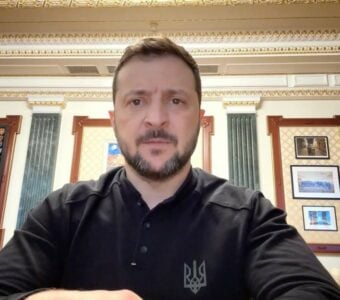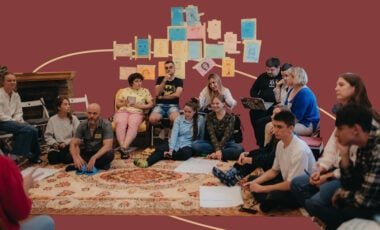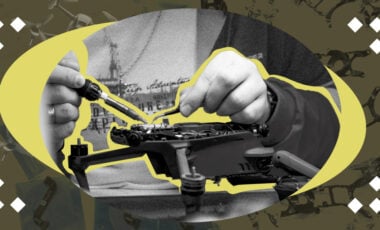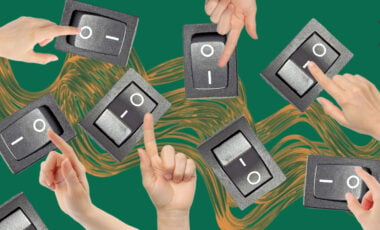To elect or not to elect: why elections are not timely in Ukraine
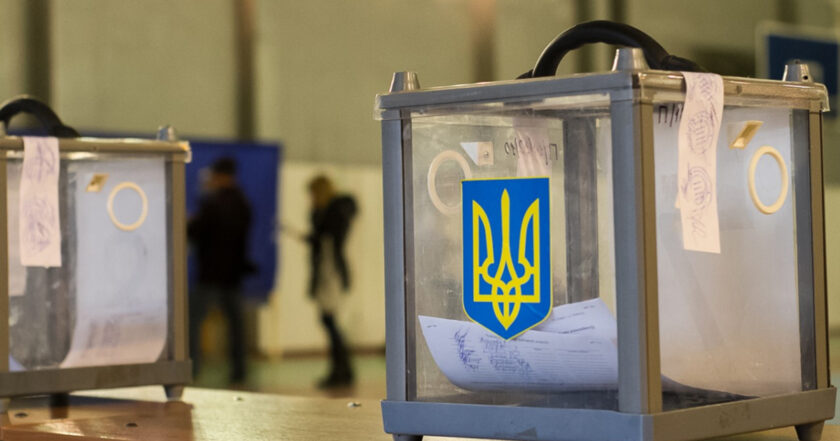
On February 24, 2022, the Central Election Commission suspended the election processes: at that time, they were ongoing in individual communities and in relation to one vacancy for a member of parliament. Since then, parliamentarians, mayors, and village heads have died, gone missing, and become collaborators. In this context, the urgency of the elections increases with each day of the war. The catch is that the next local elections have to be held as early as October 2025 — a very distant date in the current circumstances to start worrying about local campaigns. Instead, in 2023, according to the Constitution, the elections of the members of the parliament should be held, and in March 2024 — the presidential elections. Despite the hope, nothing indicates the war's end within four months, so there should be one answer to all possible questions — hostilities are incompatible with electoral actions. Meanwhile, practice turned out to be more difficult than theory.
"Ukraine is a sovereign and independent, democratic, social, legal state"
The public, political, and expert discussion about Ukraine's elections resulted from a surprisingly selective reading of the Constitution and a coincidence of internal and external preconditions. Domestically, the authorities seek to preserve stability and their own political influence. Still, the public consensus regarding the priority of victory in the war negates the dispersion of efforts on civilian issues. From the outside (primarily through the efforts of Republican Senator Lindsey Graham and PACE President Tina Cox), there were calls to hold elections as proof of Ukraine's commitment to democratic standards and confirmation of the legitimacy of the Ukrainian president (although the Ukrainian people have no doubts about this at all). Still, there were no official statements to Kyiv about this.
An additional irritant is the election in Russia in 2024, in which Putin is guaranteed to win. In the eyes of neutral countries in the global South, this can play in favor of Russian arguments in this war: they say that in Russia, which the West calls a dictatorship, citizens are expressing their will, but in Ukraine, which is considered democratic, it is not. According to the same scheme, a comparison of the legitimacy of both heads of state, parliaments, and governments can occur — with the fear that everything will not look in Ukraine's favor. Therefore, the entire war is not as it is presented to Ukraine and the West. An absolutely non-constructive mixture of "what ifs" and conspiracy: the fight for the attention and understanding of the global South requires much more effort than simple compliance with standards.
This is actually a complex situation in which considerations of political expediency, respect for democratic values, and the peculiarities of wartime politics are intertwined. There are no working recommendations on how to hold a vote under the risk of bombing so that all electoral rights are exercised, all standards are met, and a mark of quality is obtained from observers. No advice — no complaints.
The attitude of society
Ukrainians have not forgotten the long period of the Soviet dictatorship, so they perceive elections not only as a mandatory attribute of democracy but also as a way to purify the government and confirm its legitimacy. Since the summer, there has been an increase in internal criticism of the central authorities — the population still trusts the president but is interested in renewing the parliament and the government. Over the past year and a half, trust in the Cabinet of Ministers has fallen from 74% to 39% and in the Verkhovna Rada — from 58% to 21%.
If earlier in the history of Ukraine, the increase in criticism was accompanied by an increase in demands for immediate elections, now it does not look so categorical. Elections worry Ukrainian society only from the perspective of unwanted financial expenses from the state budget. In the cities, there are regular rallies against the spending of funds on any projects that do not involve the support of the army. From the point of view of society, elections during the war are on a par with landscaping parks, cleaning ponds, repairing stadiums, and reconstructing sidewalks. These issues can wait, and all extra funds should be directed to the purchase of drones and drone fighters and meeting other essential needs of military personnel.
According to the KMIS survey conducted at the end of October, 81% of Ukrainians believe that elections should be held only after the war's end, and now is not the time.
A fundamental change in public assessments of the state of affairs in the country is also essential. If in May 2022, the majority (68%) of Ukrainians preferred to avoid disputes, and criticism was permissible for only 26%, then in October 2023, 70% consider it necessary to criticize the authorities' decisions. However, against this background, the very idea of elections is perceived as a recognition by the authorities of their own incompetence and an escape from problems.
At the same time, for Ukrainians, refusing to hold the elections does not mean the loss of the legitimacy of the government, and they are ready to postpone its personnel renewal until more peaceful times. 67% believe it is necessary to extend the powers of the current president until the end of martial law. Instead, holding elections despite the war and contrary to public opinion will be a blow to the legitimacy of the central government. In addition, 51.3% of Ukrainians are sure this will not help to defeat Russia, while 40% believe that there will be a split in society in this case. After all, voting during wartime is prohibited by Ukrainian law.
What if…
Parliamentary elections are actually impossible: Article 83 of Ukraine's Constitution stipulates that parliamentary elections will be held only after martial law is abolished — until then, the current composition of the parliament will exercise its powers. This can only be changed by amending the Constitution, which is impossible during martial law—double loop.
To conduct presidential elections under martial law, changing only the relevant law on the legal regime of martial law and the electoral code is enough. However, this paves the way to other issues:
- The impossibility of complying with OSCE standards due to the temporary restriction of political rights and freedoms of citizens opens up a wide field for further contesting the voting results on suspicion of falsifications, regardless of whether violations actually occurred;
- Free will implies the absence of an administrative resource on the ground and missiles in the sky. And this is definitely not the exclusive competence of the Ukrainian leadership. If the front-line areas are under constant threat of artillery shelling or bombing, then the danger of missile strikes remains throughout the country. From a purely statistical point of view, only Transcarpathia is a relatively safe place, which does not change anything in the context of national elections;
- If the Ukrainians have somehow adapted to air alarms, but everyone is ready to take risks, then it is even more challenging to predict the consent of international observers to the arrival and their behavior under the siren;
- From a purely technical point of view, the current state of the Register of Voters and the peculiarities of voting by voters abroad require the introduction of remote voting or its extension for several days. Neither the Central Election Commission nor the voters themselves are ready for this — 65% are afraid of falsifications, the probability of which will increase in this format.
There is also the voting of military personnel (something impossible even in theory) and of Ukrainians in Russia. In general, about a legion of issues will need to be resolved.
Honey is sweet, but the bee stings
In addition to legal conflicts, there are difficulties regarding the main actors' possible motivation. All parliamentary factions and volunteers with political career prospects are against the elections. In mid-September, 100 leading non-governmental organizations issued a statement regarding the impossibility of holding elections in Ukraine during the active phase of the war due to the threat of destabilization of the state.
Not everything is clear, even from the position of the current president. Despite promising to be president only once in 2019, Volodymyr Zelensky actually announced his intention to run for a second term in an interview with the Portuguese media outlet RTP on August 30. In an October interview with the Romanian media, he developed his opinion, making his participation dependent on the war's end. Given the powerful influence on parliament and the government and the objective constraints of wartime, winning such an election does not appear to be a difficult task. Therefore, it is quite possible to extend the term for the next five years relatively cheaply. The downside of such a scenario is the high probability that Zelensky will be accused of building a dictatorship.
On the other hand, high public trust does not guarantee victory. Another risk factor is the anti-rating of the ruling party, Servant of the People. Scandals with the party's members discredit the president himself. The heads of regional, district, and city military administrations appointed by him work in their positions as long as Zelensky heads the state. In pre-election race conditions, they will simultaneously become executors of the administrative resource and collectors of negativity, which will be concentrated on the head of state.
At first glance, President Zelensky is not risking anything if he does not rush the elections and fulfills his duties until the war's end. However, a high-profile interview with Time magazine complicated the situation. It did not affect the current rating, but the heading "Nobody Believes in Our Victory Like I Do" hid suspicions of disconnection from reality and poor communication. The time until March next year will not be an easy walk regardless of the decision on the election.
The influence of international partners in the matter of elections mentioned at the beginning is frankly exaggerated. The West is aware of the situation inside the country and on the front line. Instead, the idea of Ukraine's possible fulfillment of this Western demand is used by Russia to promote an anti-Ukrainian and anti-Western narrative. In this direction, the Kremlin continues to abuse allegations about Ukraine's lack of independence and its stay under foreign rule, and it also hopes for the withdrawal of Western support and a more compliant Ukrainian government.
Russia will focus on the hybrid option:
- if there are no elections — it will appeal to the fact that Zelensky is illegitimate due to the end of his official term — there will be those who will like it;
- if the elections are held, and the configuration of the Ukrainian government does not fundamentally change, then Russia will call not to recognize their results due to the objective impossibility of complying with all democratic standards.
In both cases, it will advance the narrative of the usurpation of power and the transformation of Ukraine into a dictatorship. Well, the Kremlin will call the West guilty of this, once again accusing it of double standards.
We watched the elections in Poland and were appalled at the extent of the mud the opponents threw at each other. They seem to have forgotten that no elections in Ukraine were crystal clear from the point of view of fair play. The very possibility of the maximum aggravation of political competition within the country will find a grateful response from the aggressor.
Updating the political environment is always a good step, but it can be done without plunging the country into an election storm. For example, it is possible to form a coalition government from representatives of parliamentary factions or an entire government of national unity, expanding it to include representatives of civil society. If you are going to experiment during the war, you should do it with the possibility of its immediate termination and not all-in.






